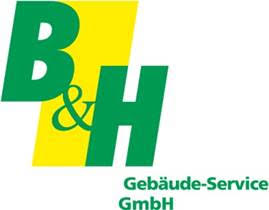General Terms and Conditions with Customer Information
Last Update: 2. July 2021
Table of contents
- Validity of the GTC
- Ordering process and Conclusion of Contract
- Contract Text and Contract Language
- Prices and Shipping Costs
- Payment Methods and Terms
- Purchase on account
- Delivery, Availability of Goods
- Copyright and Rights of Use
- Instructions on Withdrawal
- Warranty and Liability
- Dispute Resolution
1. Validity of the GTC
- The following General Terms and Conditions (hereinafter referred to as “GTC”) shall apply exclusively to the business relationship between DTO Consulting GmbH, Michael Di Figlia, Nils Tychewicz, Benrather Schloßallee 33 40597 Düsseldorf (hereinafter referred to as “Vendor”) and the purchaser, who is hereinafter referred to as “Customer”, of the Vendor’s products, goods and services (hereinafter referred to as “Products” or “Goods”).
- Deviating terms and conditions of the Customer shall not be accepted, even if the Vendor fulfils his/her contractual obligations without objection, unless the Vendor expressly agrees to the validity of the Customer’s deviating terms and conditions.
- A “Consumer” within the meaning of these GTC is any natural person who enters into a legal transaction for purposes that are predominantly neither attributable to his commercial nor to his independent professional activity.
- “Entrepreneur” within the meaning of the GTC is a natural or legal person or a partnership with legal capacity who, when concluding a legal transaction, acts in the exercise of his commercial or self-employed professional activity.
2. Ordering process and Conclusion of Contract
- The presentation of the products in the shop, on websites and in digital printed brochures or catalogues or comparable product presentations of the Vendor does not constitute a legally binding offer, but an invitation to place an order and thus the offer of the Customer.
- The Customer can select from the products offered in the Vendor’s assortment to the Customer and collect them in a so-called shopping basket. In the selection within the shopping basket, the product selection can be changed, e.g. deleted. Otherwise, the customer can initiate the completion of the order process.
- The Vendor may accept the Customer’s offer within five days (hereinafter referred to as the “Acceptance Period”). The Acceptance Period begins with the completion of the order process by the Customer. The Acceptance Period begins with the completion of the order process by the Customer in the Shop (or, if designated, by means of other communication channels) and ends with the expiry of its last day. The Vendor may accept the Customer’s offer by means of an explicit acceptance of the offer, also by e-mail. Acceptance may also be affected by dispatch of the goods and their receipt by the Customer within the Acceptance Period, as well as by a request for payment addressed by the Vendor to the Customer. In the event of several acceptance events, the earliest acceptance date shall be decisive. If the Vendor does not accept the Customer’s offer within the Acceptance Period, no contract shall be concluded and the Customer shall no longer be bound by his/her offer.
- By clicking on the button that concludes the ordering process, the Customer makes a binding offer to the Vendor to purchase the products in the shopping basket.
- Customers are requested to carefully read and observe the instructions during the ordering process and, if necessary, to use the available support functions of their software and hardware (e.g. magnification or read-aloud functions). Required information will be appropriately identified as such by the Seller for the Customers (e.g. by optical highlighting and/or asterisk signs). Until the order is submitted, the Customers can change and view the product selection and their entries at any time, as well as return to the shopping basket or cancel the ordering process altogether. For this purpose, the Customers can use the available and common functions of their software and/or end device (e.g. the forward and back buttons of the browser or keyboard, mouse and gesture functions on mobile devices).
- A contract between the Customer and the Vendor may also be concluded by e-mail. The Customer may transmit a binding offer to the Vendor by e-mail or, in the event of the transmission of a binding offer by the Vendor, accept it by e-mail.
- Customers are responsible for ensuring that the details they provide are accurate and for notifying any changes to the Vendor if they are necessary for the Vendor’s fulfilment of the contract. In particular, Customers are responsible for ensuring that the e-mail and delivery addresses they provide are accurate and that any obstructions to receipt for which Customers are responsible are taken into account accordingly (e.g. by checking the spam folder of the email software used).
3. Contract Text and Contract Language
- The Vendor saves the text of the contract and makes it available to the Customers in text form (e.g. by e-mail or printed with the delivery of the order). The Customer can print the text of the contract before submitting the order to the Vendor by using the print function of his browser or the save function for web pages in the last step of the ordering process.
- If Customers have created a customer account, they can view their placed orders in their profile area.
- The contract languages are German and English, contracts can be concluded in these languages.
4. Prices and Shipping Costs
Unless otherwise stated, all prices are total prices including the applicable statutory value added tax (VAT).
5. Payment Methods and Terms
- Unless otherwise agreed, payments shall be made without discounts, reductions or other rebates.
- When using financial institutions and other payment service providers, the terms and conditions and data protection information of the payment service providers also apply with regard to payment. Customers are requested to observe these regulations and notes as well as information within the framework of the payment process. This is particularly because the provision of payment methods or the course of the payment procedure may also depend on the agreements between the Customer and financial institutions and payment service providers (e.g. agreed spending limits, location-restricted payment options, verification procedures, etc.).
- The Customer shall ensure that the Customer fulfills the conditions incumbent upon the Customer, which are necessary for successful payment by means of the selected payment method. This includes, in particular, sufficient coverage of bank and other payment accounts, registration, legitimation and authorization with payment services and confirmation of transactions.
- If a payment is not made or reversed due to insufficient funds in the Customer’s account, the provision of incorrect bank details or an unjustified objection by the Customer, then the Customer shall bear the fees incurred as a result, provided that the Customer is responsible for the failed or reversed booking and, in the case of a SEPA credit transfer, was informed of the transfer in good time (so-called “pre-notification”).
- If the Vendor assigns its payment claim against the Customer to payment service providers, the payment with debt-discharging effect can only be made to the respective payment service provider. The contractual obligations of the Vendor towards the Customer, in particular the performance and warranty obligations, observance of withdrawals as well as contractual ancillary obligations shall not be affected by the assignment.
- The following payment methods are available to Customers:
- Credit card payment – When placing an order, Customers provide their credit card details. The Customer’s credit card will be charged immediately after completion of the order and after the Customer’s authorisation as the legitimate cardholder.
- PayPal – The payment is made through the payment service provider PayPal (Europe) S.à r.l. et Cie, S.C.A., 22-24 Boulevard Royal, L-2449 Luxembourg (hereinafter: “PayPal”) by means of the type of PayPal payment provided by the seller or selected by Customers. Customers are redirected directly to PayPal at the end of the order process. The terms of use of PayPal apply, which can be viewed at https://www.paypal.com/uk/webapps/mpp/ua/legalhub-full and will be communicated to the Customer during the payment process.
- PayPal Express – The customer pays the amount owed by means of the PayPal transaction.
- PayPal Plus (PayPal) – The Customer must have a PayPal account and pays the amount owed by means of the PayPal transaction process.
- PayPal Plus (Direct Debit) – The Customer can pay by means of PayPal’s direct debit procedure even if he does not have a PayPal account. The Customer issues a SEPA direct debit mandate to PayPal. By issuing the SEPA direct debit mandate, PayPal is authorized to initiate the payment transaction, which automatically debits the Customer’s bank account. The Customer will be informed about the date of the debit of the bank account (referred to as “Pre-Notification”).
- PayPal Plus (Credit Card) – The customer can pay by credit card via PayPal even if he does not have a PayPal account. The Customers must identify themselves as a legitimate Cardholder in order to make the payment before the payment transaction is executed and the Customer’s account is automatically debited.
- PayPal Plus (Purchase on account) – The Customer can make a purchase on account via PayPal even if he does not have a PayPal account. Prerequisite is a successful verification of the address and creditworthiness of the customer by PayPal. The Vendor assigns the payment to PayPal. A debt-discharging payment can only be made to PayPal according to the conditions and the selected, or stated payment term of PayPal. The terms of use of PayPal for the purchase on account apply.
- PayPal Credit – Requirement for a payment in installments via PayPal is a successful verification of the address and the creditworthiness of the customer by PayPal. The Vendor assigns the payment to PayPal, a debt-discharging payment can only be made to PayPal in accordance with PayPal’s terms and conditions.
- Stripe – The use of Stripe may require registration for this payment method, depending on the selected payment methods. The payment transaction is carried out on the basis of Stripe’s terms and conditions, which are also communicated to the Customer during the ordering process. Further information and conditions: https://stripe.com/de.
6. Purchase on account
If the Vendor performs in advance, the delivered products shall remain the property of the Vendor until payment has been made in full.
7. Delivery, Availability of Goods
- The ordered goods will be delivered to the specified delivery address, unless otherwise agreed.
- If a payment service provider is used with whom a delivery address is deposited and this delivery address is notified to the Vendor as being decisive for the ordered delivery through the use of the means of payment by the Customer, the goods shall be delivered to the deviating delivery address.
Copyright and Rights of Use
- The products sold by the Vendor are protected by intellectual property rights (in particular trademark and copyright). The rights of use and exploitation are held by the Vendor or the respective rights holders. Customers commit themselves to recognize and comply with these property rights.
- The Customer shall receive the non-exclusive rights to use the acquired products for purposes in accordance with the contractual agreement. Otherwise, use and exploitation of the products is not permitted. In particular, copyrighted products of the Vendor may not be reproduced, distributed, made publicly available or in any other way made available to third parties on the internet or intranets. Public reproduction, duplication or other further publication are not part of this contract and are therefore prohibited. Copyright notices, trademarks and other legal reservations may not be removed from the products unless this is necessary for the contractual use of the products or is permitted by law.
- If the products are subject to a specific licence of use, the Customers shall be informed about the licence of use. In this case, the provisions of the licence of use shall apply before these GTC.
- If the Vendor performs in advance, the granting of the rights of use to the Customer shall only be provisional and shall only become effective when the Customer has paid the complete purchase price of the relevant Goods.
8. Instructions on Withdrawal
- The information on the right of withdrawal for Consumers can be found in the Vendor’s instructions on withdrawal.
- Customers can access the Vendor’s instructions on withdrawal at the following Internet address: https://www.healthy-workplaces.com/withdrawal/.
9. Warranty and Liability
- Subject to the following provisions, the warranty (statutory liability for defects) shall be determined in accordance with statutory provisions.
- The Vendor shall not be liable for the Customer’s Internet connection or the software and hardware used by the Customer or any disruptions caused by them to the conclusion or performance of the contract between the Customer and the Vendor.
- The Vendor shall be liable for damages without limitation insofar as the cause of the damage is based on intent or gross negligence. Furthermore, the Vendor shall be liable for the slightly negligent breach of essential obligations, the breach of which endangers the achievement of the purpose of the contract, for the breach of obligations, the fulfilment of which makes the proper performance of the contract possible in the first place and on the compliance with which the customer regularly relies (cardinal obligations) or in the case of agreed guarantee commitments. In this case, however, the Vendor shall only be liable for the foreseeable, contract-typical and expectable damage. The Vendor shall not be liable for the slightly negligent breach of obligations other than those mentioned above. The above limitations of liability shall not apply in the event of injury to life, limb or health, for a defect following the assumption of a guarantee for the quality of the product and in the event of fraudulently concealed defects. Liability under the product liability law remains unaffected. Insofar as the Vendor’s liability is excluded or limited, this shall also apply to the personal liability of employees, representatives and vicarious agents. In all other respects, claims for damages by the Customer shall be excluded. The above liability provisions shall also apply to claims for damages by the Customer under the Vendor’s statutory warranty.
10. Dispute Resolution
We are not willing and not obliged to participate in any dispute resolution proceedings before a consumer arbitration board.
















